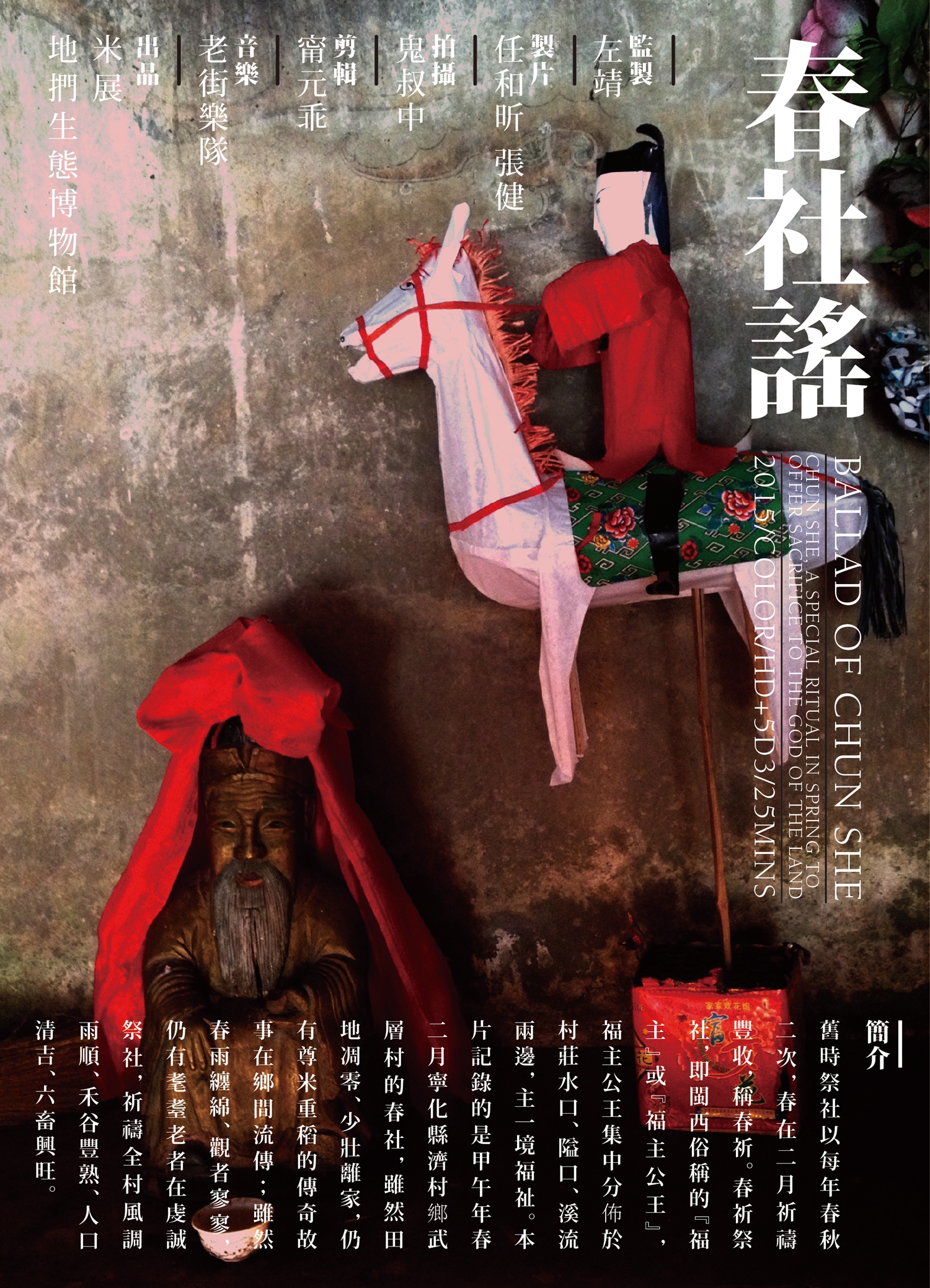舊時祭社以每年春秋二次,春在二月祈禱豐收,稱春祈。春祈祭社,即閩西俗稱的“福主”或“福主公王”,福主公王集中分布於村莊水口、隘口、溪流兩邊,主一境福祉。本片記錄的是甲午年春二月寧化縣濟村鄉武層村的春社,雖然田地凋零、少壯離家,仍有尊米重稻的傳奇故事在鄉間流傳;雖然春雨纏綿、觀者寥寥,仍有耄耋老者在虔誠祭社,祈禱全村風調雨順、禾穀豐熟、人口清吉、六畜興旺。
基本介紹
電影劇情,影片評價,
電影劇情
舊時祭社以每年春秋二次,春在二月祈禱豐收,稱春祈。春祈祭社,即閩西俗稱的“福主”或“福主公王”,福主公王集中分布於村莊水口、隘口、溪流兩邊,主一境福祉。本片記錄的是甲午年春二月寧化縣濟村鄉武層村的春社,雖然田地凋零、少壯離家,仍有尊米重稻的傳奇故事在鄉間流傳;雖然春雨纏綿、觀者寥寥,仍有耄耋老者在虔誠祭社,祈禱全村風調雨順、禾穀豐熟、人口清吉、六畜興旺。
In traditional China, rural people usually pray for harvest in spring and offer thanks in fall, the rite in spring performed in the second month of the lunar calendar. In western Fujian Hakka area, people worship Fuzhu (also named the lord of Fuzhu, the god of land) in the day of spring pray day (Sheri). This film records a Sheri in Wucheng village in the year of horse (2014), in Ninghua County,Fujian. Although young people all went to big cities away form home for work, although much land was left uncultivated, old people still perform the rite every year for the harvest and peace of the whole village.
影片評價
《春社謠》以客家話汀州片獲得足榮村方言電影節“最本土電影原創音樂獎”和“愛故鄉特殊貢獻獎”提名。

